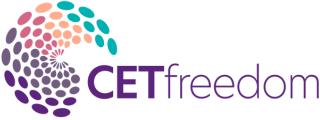Charlotte had always had a life-long dream of being a writer. She had quit her day job, but now found herself spending her days frustrated at her cluttered desk, surrounded by papers, books and bills! It was not going to plan. A staunch believer in the law of attraction, she spent her days saying her affirmations, gazing at her vision board and dreaming. But no amount of visualisation seemed to quiet that little nagging voice. That deep feeling that was telling her something. Assuming it was just doubt, she silenced it with louder affirmations and more visualisation.
Time passed. Bills mounted. Affirmations were said. But no writing was happening.
Assuming it was writer’s block she kept struggling and trying harder.
Until one day, she just couldn’t get out of bed. She couldn’t face another day of disappointment, frustration and all that effort of affirming herself as the writer she just wasn’t able to embody.
Lying in bed, she allowed her mind to roam freely. First the worries and doubts arose; but, for the first time, rather than telling them to shut up, she asked them what they wanted to tell her.
As she dosed back off to a light sleep, she started to dream. One of those strange, vivid, impactful dreams. She saw herself in a strange dark cave, approached by a mysterious figure in a robe. Though impossible to tell the gender, the power, charisma and presence were undeniable.
The figure started showing her images. Charlotte going back to school. Charlotte in a writers’ circle. Charlotte at her PC, writing. And writing and writing. Charlotte reading her work out. Charlotte publishing her work on a blog. Charlotte videoing herself reading her work.
Finally, Charlotte signing a publishing deal.
Charlotte jolted awake.
Suddenly she saw a way out.
She also realised the problem.
She had been so swept away with the dream and vision of being a published author, she forgot that she needed to do the work. And maybe learn a little more about her craft. Perhaps her raw talent wasn’t enough!
She fired up her PC and started to look for classes and writing groups. She found and joined a local writers’ group; she applied for a class at her local college.
She started to write. A short story. A blog. She started to write about everything and anything. Some fiction. Some articles. She found her voice, her style. Charlotte published her work on her own blog. She posted on social media too. She plucked up the courage to start videoing herself reading her own work.
Her following grew. She got real-time, real-people feedback. She discovered what people wanted and wrote more of that.
It was 18 months later that she was signing a publishing contract.
She wasn’t getting a 6-figure advance, but she WAS getting published. A short story in a compilation.
It became the first of many.
She was finally a published author.
Trusting her intuition, rather than her hopeful or wishful thinking, had paid off. She made more than she had at her day job and felt a deep sense of satisfaction and joy from her work.
Intuition vs Hopeful Thinking
Charlotte’s story isn’t unusual. Many have been led to silence their intuition by their hopeful thinking. But both are useful when approached in the right way.
Intuition is the ability to understand or know something without conscious reasoning.
Intuition arises spontaneously, and often when we are relaxed and in a light trance.
Intuition doesn’t necessarily have obvious concrete evidence or data, but exploration and investigation can reveal it. Intuition can be hard to explain or articulate. It is often beyond words, so, as soon as we try to describe it linguistically, it seems to vanish.
Hopeful thinking, also known as wishful thinking, is a cognitive bias, where people believe in a positive outcome or future despite little or no evidence to support that belief. It often involves unrealistic optimism.
Hopeful thinking arises from our natural desire for good outcomes and our natural drive to grow.
It often ignores any obstacles or risks. It can be irrational and result in poor decision-making if it isn’t balanced with realism and research.
It is highly emotional and often feels good, which is why people engaging in it deny or silence their intuition, because it feels like doubt or suggests failure.
One way of thinking about the differences is that Hopeful thinking is the WHAT. What is it you want and desire?
Intuition offers you the HOW. How might you achieve your desire?
Intuition will guide you to opportunism, and suggest actions, solutions and opportunities.
Intuition as a tool for success
Intuition is a powerful tool for success. It can guide you to opportunities and help with setting clear, authentic intentions. It can give you insights and information that you might never come up with if you only relied on your rational thought processes.
Intuition can also let you know where you need to put in some effort, work or training. Many mistake intuitive insights for doubts, fears or blocks, but they are simply our higher self, guiding us to ground our vision. When harnessed effectively, intuition can supercharge your success by aligning your personal desires with your higher purpose.
Disregarding your intuition can lead you to set goals or intentions that are out of alignment with your authentic and higher self.
The power of positivity
Hopeful and wishful thinking have their uses too. For example, it is a powerful motivator to provoke you to take the action that you’re guided to take by your intuition. It can encourage you to focus on your dreams and desires whilst doing some of the more mundane work that achieving anything inevitably requires.Those who mistakenly believe that positive thinking and feeling positive will automatically manifest their desires, without the need for planning action or taking risks, usually end up disappointed and frustrated.
How to balance intuition and hopeful thinking
- Set authentic intentions. Use your intuition to identify what really matters to you, rather than an external, or ego-driven goal.
- Maintain positivity. Embrace hopeful thinking to maintain a positive outlook and boost your motivation, whilst remembering that this should complement, rather than replace, practical action and planning.
- Stay open to guidance. Your intuition will constantly give you insights to course correct. And help you adjust your approach if needed.
- Take practical steps. Nothing is created in physical reality without someone, somewhere, moving matter. Houses are built when bricks are stacked one on another. Use your intuition to guide you as to what steps to take and when you might delegate some of the action. But action is always needed.
What do you think?
Please leave a comment and share your thoughts!!







